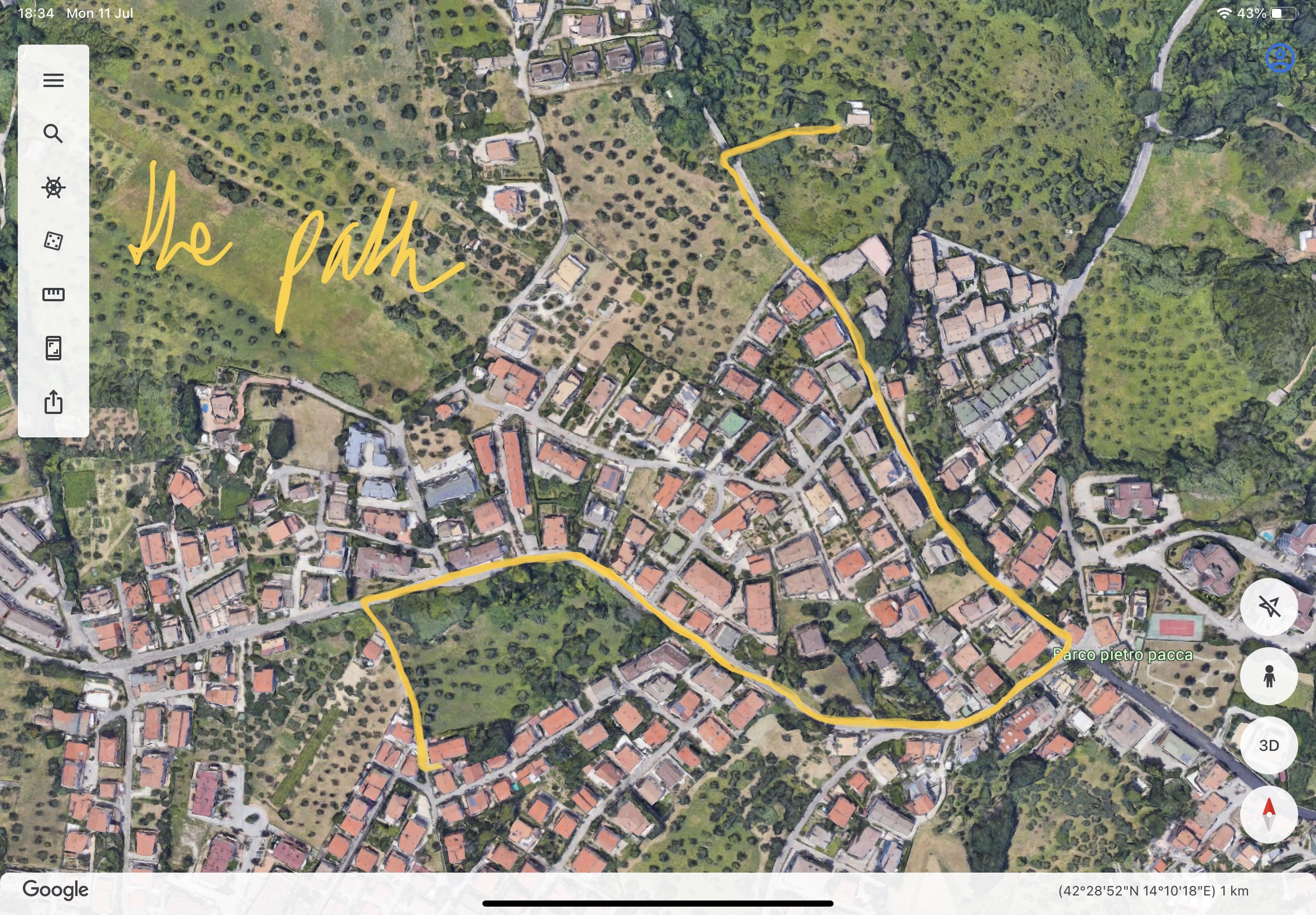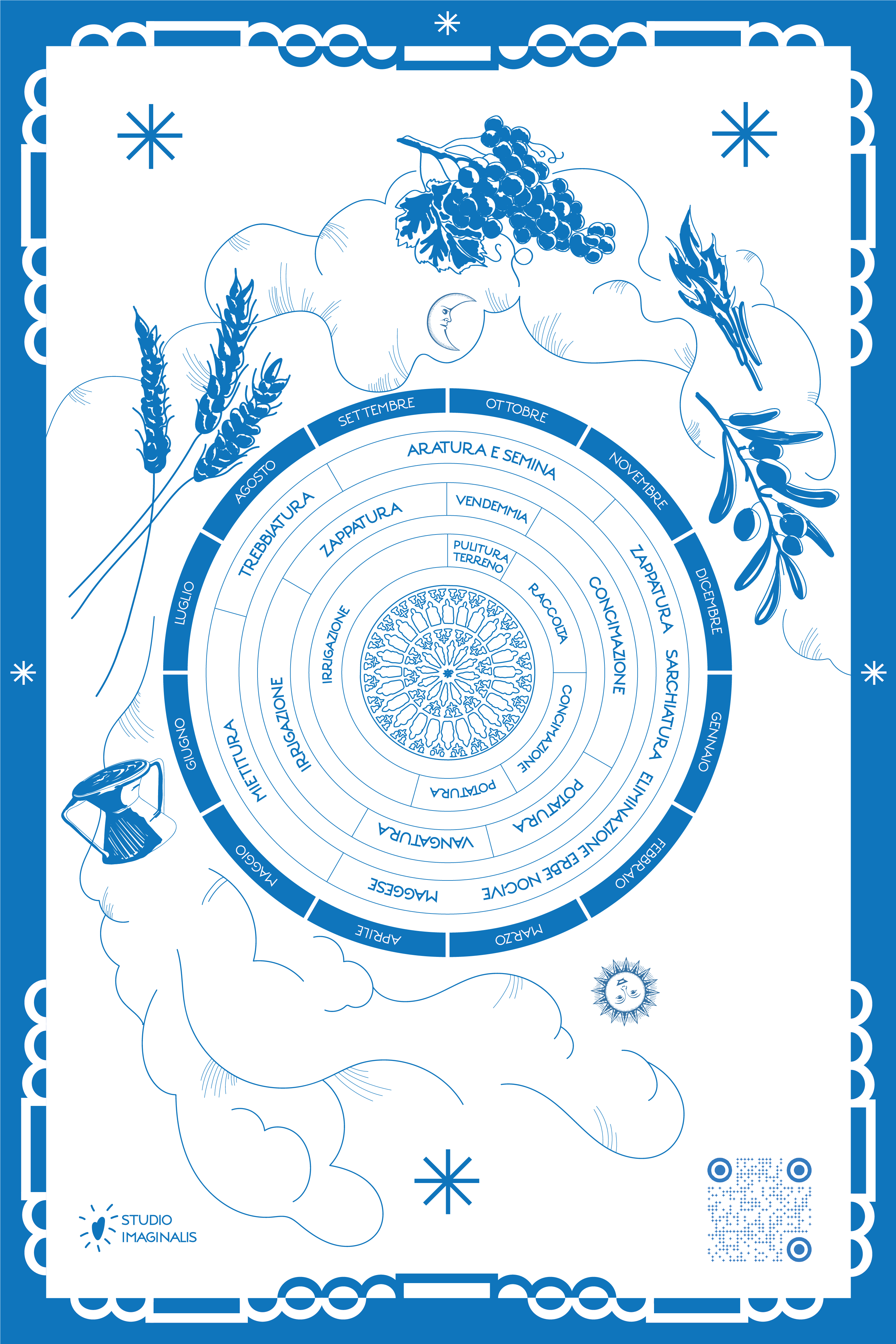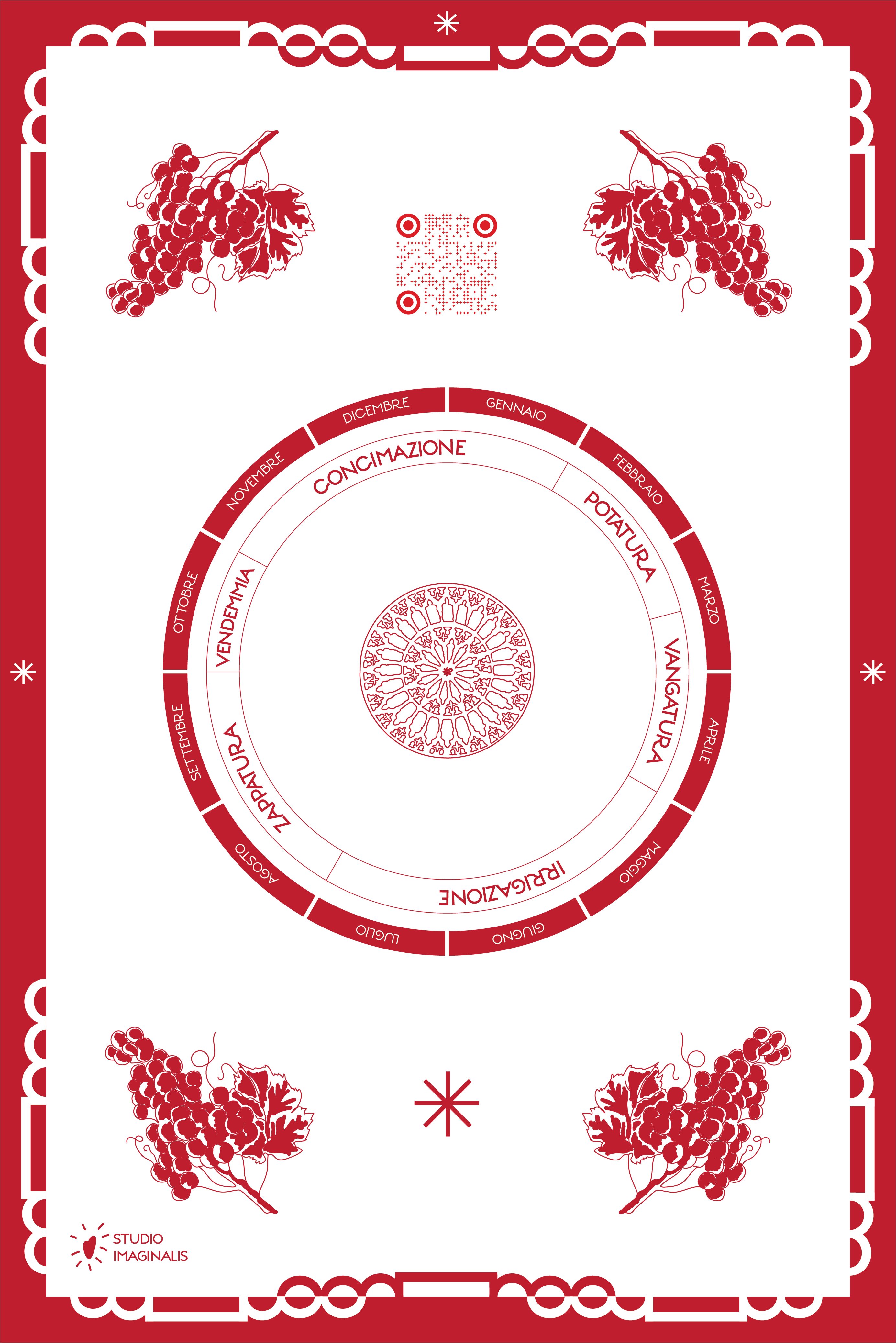The Magical Atlas of Italian Sharecropping, has been described as a ‘groundbreaking academic work’ by the University of Amsterdam’s Thesis Prize Jury, which awarded it with the 2024 Faculty of Humanities Thesis Prize.
They say about the Atlas: 'the combination of lived experience of the researcher whose own family history is unraveled and in practice-based research creates a sparkling account. To embed a personal yet academically rigorous voice in a range of academically dense issues, including theoretical approaches round the subaltern, re-enchantment, the archive, the postdigital, and hauntology, is highly impressive.'
In its little, this project was an attempt at countering the extractive mode of knowledge production that gleans information from lived experiences and their spatial realm (often times in rural communities the field, the home or the kitchen) and encloses it within the archives’ boxes and walls.
The aim is to invert this flow of information - from the archive back to the kitchens where the knowledge of everyday things such as harvest cycles was extracted from.
In collaboration with a local weaver and a team of designers, the Magical Atlas developed into a collection of four handwoven kitchen towels inspired by Abruzzese peasant life and cosmology.
They say about the Atlas: 'the combination of lived experience of the researcher whose own family history is unraveled and in practice-based research creates a sparkling account. To embed a personal yet academically rigorous voice in a range of academically dense issues, including theoretical approaches round the subaltern, re-enchantment, the archive, the postdigital, and hauntology, is highly impressive.'
In its little, this project was an attempt at countering the extractive mode of knowledge production that gleans information from lived experiences and their spatial realm (often times in rural communities the field, the home or the kitchen) and encloses it within the archives’ boxes and walls.
The aim is to invert this flow of information - from the archive back to the kitchens where the knowledge of everyday things such as harvest cycles was extracted from.
In collaboration with a local weaver and a team of designers, the Magical Atlas developed into a collection of four handwoven kitchen towels inspired by Abruzzese peasant life and cosmology.
THE MAGICAL ATLAS OF ITALIAN SHARECROPPING
art and performance research studies graduate dissertation
Marta Pagliuca Pelacani
In collaboration with:
Tomàs Ornaghi (Amsterdam, NL)
Valeria Belli (Chieti, IT)
Arago Design (Pescara, IT)
with the help of:
SPACEX - Spatial Practices in Art and Architecture for Empathic ExchangeThe Magical Atlas of Italian Sharecropping
Residencies:
July 2022 - Museo delle Genti d’Abruzzo, Pescara, IT
April 2023 - May Day Room Archives, London, UK
Exhibitions:
June 2023 - Heaps and heaps and heaps and - Group Show - De Appel, Amsterdam (NL)
Press:
University of Amsterdam, “Marta Pagliuca Pelacani faculty winner UvA thesis prize,” https://www.uva.nl/en/shared-content/faculteiten/en/faculteit-der-geesteswetenschappen/news/2024/05/marta-pelacani-nominated.html
art and performance research studies graduate dissertation
Marta Pagliuca Pelacani
In collaboration with:
Tomàs Ornaghi (Amsterdam, NL)
Valeria Belli (Chieti, IT)
Arago Design (Pescara, IT)
with the help of:
SPACEX - Spatial Practices in Art and Architecture for Empathic ExchangeThe Magical Atlas of Italian Sharecropping
Residencies:
July 2022 - Museo delle Genti d’Abruzzo, Pescara, IT
April 2023 - May Day Room Archives, London, UK
Exhibitions:
June 2023 - Heaps and heaps and heaps and - Group Show - De Appel, Amsterdam (NL)
Press:
University of Amsterdam, “Marta Pagliuca Pelacani faculty winner UvA thesis prize,” https://www.uva.nl/en/shared-content/faculteiten/en/faculteit-der-geesteswetenschappen/news/2024/05/marta-pelacani-nominated.html

The Magical Atlas of Italian Sharecropping employs a research method based on microhistory to study the illiterate sharecropping communities of Southern Italy. The result is an attempt to explore the potential of storytelling methodologies in creatively activating existing spatial or institutional archives.
Developed in a close relationship with the local community of ‘I Colli’ in Pescara, Italy, the Magical Atlas used reciprocal storytelling as a method for socially engaged artistic practice, creating a relationship between the community and the archives that ‘studied’ them.
The research articulates itself in three chapters: the Home, the Kitchen and the Field.


The Home
Looking for strategies to deal with grief led me to a spatial examination of the sharecropping house in which my mother grew up.
Understanding this home as an archive of my mother’s lived experience, I use the work of Jacques Derrida and Antonio Gramsci (among others) to theorise on its significance as a locus of analysis. Walking a virtual path between that home and our family house, I interrogate the extent of sharecropping’s violence as an agricultural practice through the evidence provided by its spatial design.
Sharecropping was outlawed in Italy in 1982. Until then, it was possible for a family to work on a land that belonged to another, in a home they did not own, and not receive any payment. Instead of rent, sharecroppers gave landowners half of the harvest.
The house is now abadanoned. Trespassing into its property is an offence. My virtual visits were a first attempt to examine my heritage from a distance.
Understanding this home as an archive of my mother’s lived experience, I use the work of Jacques Derrida and Antonio Gramsci (among others) to theorise on its significance as a locus of analysis. Walking a virtual path between that home and our family house, I interrogate the extent of sharecropping’s violence as an agricultural practice through the evidence provided by its spatial design.
Sharecropping was outlawed in Italy in 1982. Until then, it was possible for a family to work on a land that belonged to another, in a home they did not own, and not receive any payment. Instead of rent, sharecroppers gave landowners half of the harvest.
The house is now abadanoned. Trespassing into its property is an offence. My virtual visits were a first attempt to examine my heritage from a distance.
This research has evolved into a storytelling practice based on my findings.
Aided by powerpoint slides and video material, I tell stories about sharecropping and my family. Telling these stories is a form of remembrance: everytime, I invite the audience to join me in a collective celebration of the demise of Italian sharecropping.
Aided by powerpoint slides and video material, I tell stories about sharecropping and my family. Telling these stories is a form of remembrance: everytime, I invite the audience to join me in a collective celebration of the demise of Italian sharecropping.

my aunt Maria facing the Atlas, September 2023
From this intergenerational exchange, the idea of a second atlas was born: a digital infrastructure connected to the tangible, material collection of the teatowels.
The Magical Atlas of Italian Sharecropping is not an archive. It does not seek to reproduce a sentimentalising image of Abruzzo’s peasants.
Rather, taking inspiration from Alfred North Whitehead and the SenseLab created by Massumi and Manning at Concordia University, its aim is that of working as a postdigital ‘anarchive’: a transmedial repertoire of knowledge and stories that works not through
transparency, but towards the temporary definition of a space that opens “to that which has been obscured or excluded”, and in which technologies and techniques of the archive are pushed to a threshold where “they too are transformed by the world in process”.
(The How-To Go-To Book of Anarchiving, ed. Andrew Murphy, p. 43).
Visit it here: https://themagicalatlas.cargo.site/
The Kitchen
The Kitchen
Teatowels become a tool for the intergenerational transmission of knowledge among surviving descendants of Italian sharecroppers. Co-opting the consumerist tradition of souvenir teatowels, they represent a different heritage than the hegemonic idea of the Italian nation advanced by popular souvenirs.
The two Atlases are connected by a QR code that allows curious users to access the platform. While the textile atlas hopes to stimulate intergenerational knowledge transmission by bringing back symbols and cycles of peasant life into the home and the kitchen, the digital atlas tends to alienated communities that no longer have the opportunity to learn about the heritage from previous generations. How to imagine our past then?
The souvenir becomes a way to critically engage with Italian heritage, highlighting the kitchen’s historical role as a political space.
The two Atlases are connected by a QR code that allows curious users to access the platform. While the textile atlas hopes to stimulate intergenerational knowledge transmission by bringing back symbols and cycles of peasant life into the home and the kitchen, the digital atlas tends to alienated communities that no longer have the opportunity to learn about the heritage from previous generations. How to imagine our past then?
The souvenir becomes a way to critically engage with Italian heritage, highlighting the kitchen’s historical role as a political space.




Canovacci
A collection of four, hand-woven, linen and cotton teatowels inspired by the work of Adriana Gandolfi and the Museo delle Genti d’Abruzzo collections.
Realised in collaboration with: Tomàs Ornaghi (NL), Arago Design (IT) and Filiforme Tessitura (IT).
The Field
This field, which lies in front of my family home in Pescara (IT), belongs to the same family of landowners that kept my grandparents on their land as sharecroppers.
It has been uncultivated for 40 years.
Occasionally, women like my grandmother would forage wild asparagus on it. Others take their dogs on a walk. In 2022, I began filming the field and the way locals interact with it: planting a garden with succulents and basil, hunting for snails after the rain.
During my year as a member of the ‘Al Masha - Rural Commons’ postgraduate studies programme offered by DAAS at the Royal Institute of Art in Stockholm I developed the first steps of artistic research path on this field in 2024.
Find it here: https://martapagliucapelacani.cargo.site/Decolonizing-Architecture-Art-Research-Advanced-Studies-2023-2024
